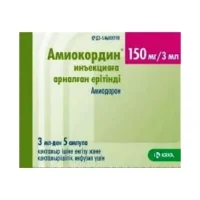Description
Magurol (Doxazosin) Tablets 4 mg. №20
Ingredients
- Active ingredient: Doxazosin mesylate 4 mg per tablet.
Dosage
- Recommended dosage: The usual starting dose is 1 mg once daily. Dosage may be increased gradually as needed under medical supervision.
Indications
- Magurol tablets are indicated for the treatment of hypertension (high blood pressure) and benign prostatic hyperplasia (enlarged prostate).
Contraindications
- Do not use Magurol tablets if you are allergic to doxazosin or similar medications, have a history of orthostatic hypotension, or are pregnant.
Directions
- Take Magurol tablets orally with or without food, usually once daily. Follow the dosage instructions provided by your healthcare provider.
Scientific Evidence
- Doxazosin, the active ingredient in Magurol tablets, is an alpha-1 adrenergic blocker that works by relaxing blood vessels and improving blood flow. Studies have shown that doxazosin is effective in lowering blood pressure and relieving symptoms of benign prostatic hyperplasia.
Additional Information
- Pharmacological Effects: Doxazosin acts selectively on alpha-1 adrenergic receptors in the smooth muscle of blood vessels and the prostate, leading to vasodilation and relaxation of the prostate muscles. This dual action helps in reducing blood pressure and improving urinary symptoms associated with benign prostatic hyperplasia.
- Clinical Trials: Clinical trials have demonstrated the efficacy of doxazosin in the management of hypertension and benign prostatic hyperplasia. A study published in the Journal of Urology showed that doxazosin significantly improved urinary flow rates and symptoms in patients with enlarged prostates.





